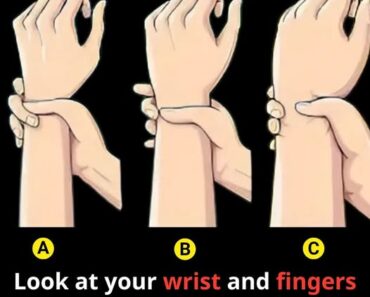Tragic Legend Collapse: Four Pillars of America’s Glory Fall in a Single Day, Shattering Hearts and History!  In a day no one will ever forget, four of the most revered American legends breathed their last, sending shockwaves through every corner of the country. Was it fate, a curse, or something sinister lurking beneath the surface? The emotional fallout is colossal, with fans and foes alike grappling to understand this devastating blow to the nation’s soul.
In a day no one will ever forget, four of the most revered American legends breathed their last, sending shockwaves through every corner of the country. Was it fate, a curse, or something sinister lurking beneath the surface? The emotional fallout is colossal, with fans and foes alike grappling to understand this devastating blow to the nation’s soul. 
Posted by
–
When Giants Fall: The Shocking End of Four American Legends

In the shadowed corners of fame, where the glittering lights blind the masses, the unthinkable happened today.
Four titans of American culture—each a beacon in their own right—fell, leaving a void so vast it threatens to swallow the very soul of entertainment itself.
This is not a mere obituary; this is a seismic rupture in the Hollywood landscape, a shattering revelation that cracks the facade of immortality we so dearly cling to.
Kelley Mack—a name whispered in reverence by fans who saw in her not just an actress, but a warrior of emotion.
Her performances in The Walking Dead were more than roles; they were battles fought with raw vulnerability and fierce defiance.
She was the storm behind the calm, the silent scream in the chaos of survival.
But beneath that fearless presence was a fragile heart, a soul worn thin by the relentless demands of a world that often mistakes strength for invincibility.
Her death is not just a loss; it is an unraveling, a reminder that even the fiercest flames can be extinguished by the coldest winds.

Alfie Wise—the man who made laughter an art form, whose comedic timing was as precise as a surgeon’s scalpel.
He was the architect of joy in a decade that desperately needed it—the 1980s.
His face, etched into the annals of classic film comedy, was a constant beacon of lightness in a world often too heavy to bear.
Yet, behind those contagious smiles and uproarious laughter lay a man haunted by silence, a soul wrestling with shadows that no punchline could dispel.
His passing is a cruel irony, a dark punchline to a life spent making others forget their pain.

Jonathan Kaplan—a visionary whose camera lens did more than capture images; it exposed truths.
The Oscar-nominated director and television producer was a relentless force, challenging norms and stirring consciences.
His films, like The Accused, were not just stories but battlegrounds where justice and morality clashed in brutal honesty.
Kaplan’s death is a silence louder than any applause, a final cut to a career that dared to confront the uncomfortable and the unseen.
It is a bitter twist that the storyteller who unveiled the darkest corners of humanity has now become a ghost in the shadows of his own narrative.
Col Joye—Australia’s rock and roll pioneer, a man who ignited stages with the fire of youth and rebellion.
His music was the soundtrack of a cultural revolution, a defiant roar against conformity.
Joye was more than a performer; he was a symbol of freedom, a heartbeat of a generation breaking chains and setting new rhythms.
His death is a silence that echoes louder than any anthem, a final note that leaves the stage eerily empty.
It is a poignant reminder that even legends must bow to time’s relentless march.
The convergence of these deaths on a single day is no coincidence—it is a cataclysm, a cosmic reckoning.
It is as if the very fabric of American artistry has been torn, revealing the fragile threads beneath the glittering tapestry.
The public, once enamored by their brilliance, now faces the stark reality: immortality is a myth, and even the brightest stars are doomed to fall.
Behind the scenes, whispers circulate of hidden battles—of struggles with mental demons, of the crushing weight of fame, and of the loneliness that fame cannot fill.
The facades have crumbled, exposing raw wounds and unspoken truths.
This is Hollywood stripped bare, a brutal unveiling that shocks the conscience and shatters illusions.
In the wake of their passing, a haunting question lingers: what price did they pay for the spotlight?
Was it the relentless pursuit of perfection? The sacrifice of self? Or the silent war waged within, invisible to adoring eyes?
Their legacies are etched in celluloid, in laughter, in melodies that refuse to fade.
But today, those legacies are stained with the bittersweet ink of loss and revelation.
This is not just the end of four lives; it is the collapse of an era, a dark turning point that will echo through the corridors of entertainment history.
The curtain has fallen, but the story—raw, painful, and unforgettable—has only just begun.




